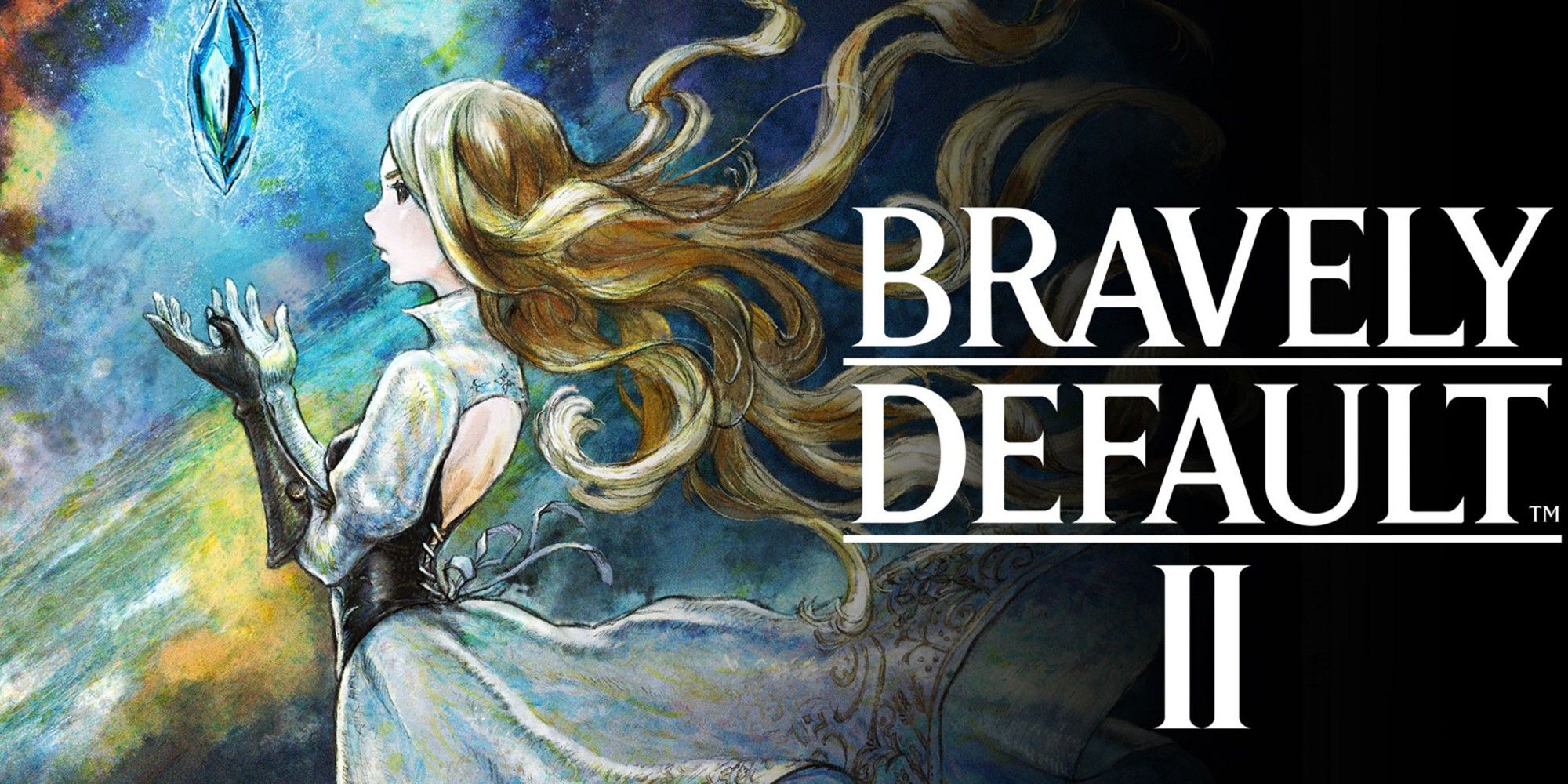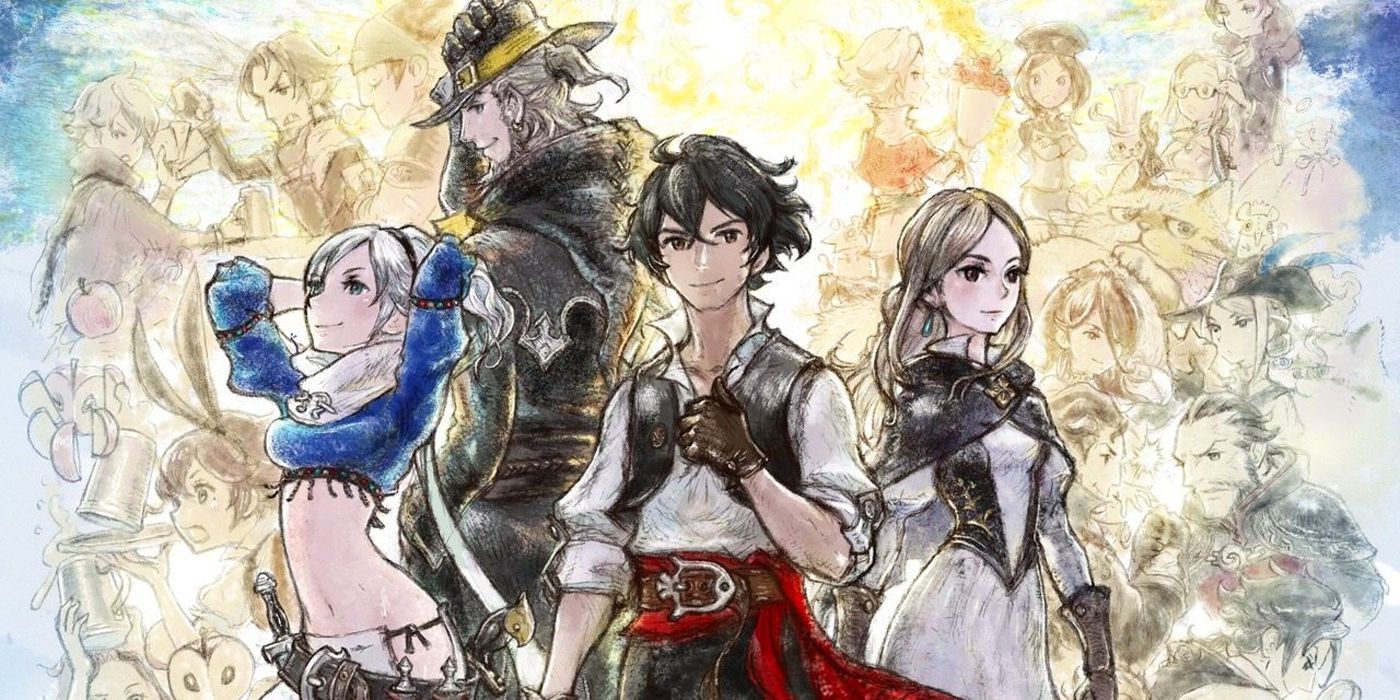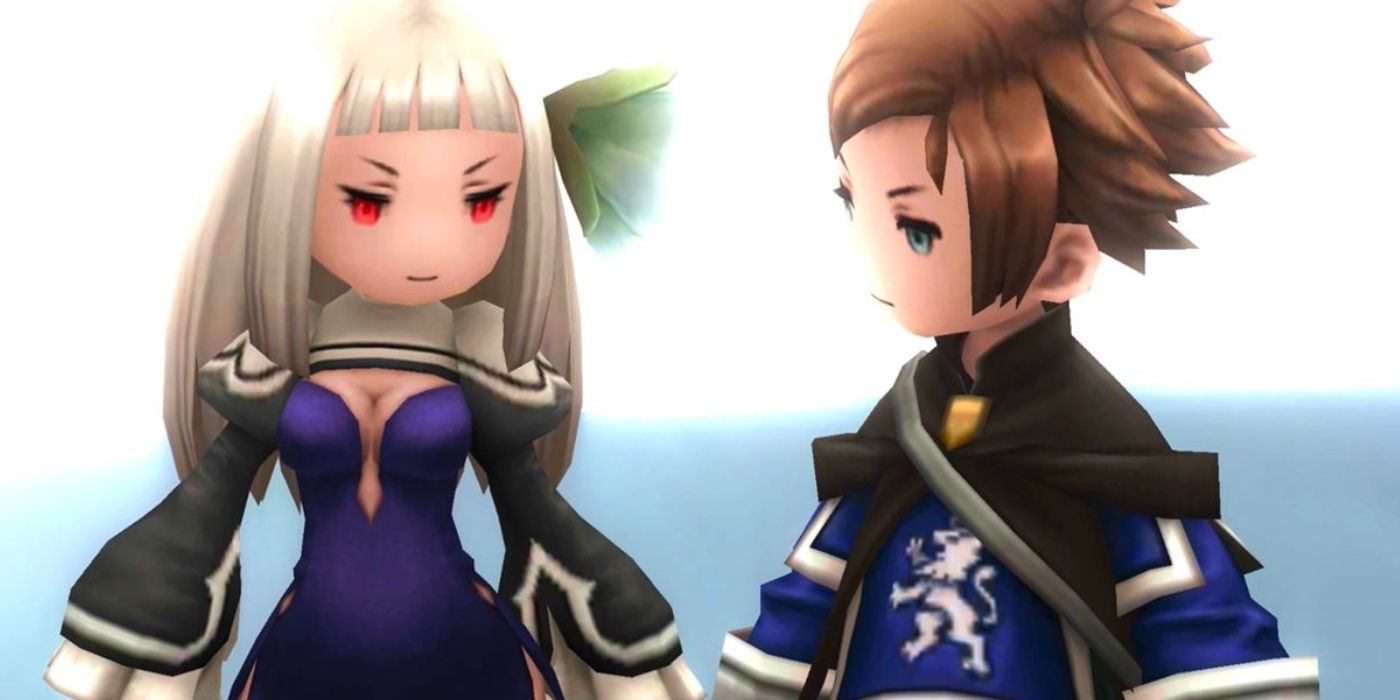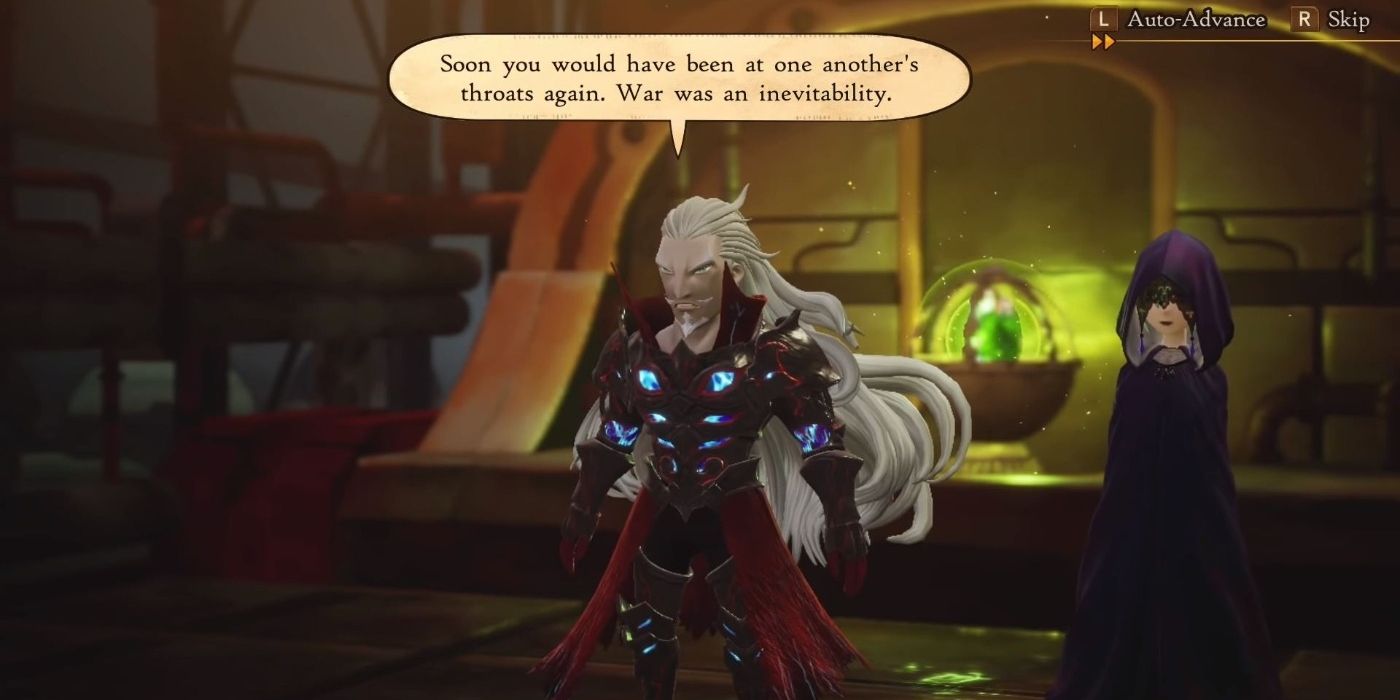
The next Bravely Default game needs a better story. Developer Square Enix's classically-inspired RPGs may have updated old-school gameplay for a modern world, but their writing is rapidly stagnating. This, combined with grind-heavy progression and an awkward difficult curve, means the series is already running the risk of becoming irrelevant.
Bravely Default began an effort by Square Enix to recapture the spirit of the 8 and 16-bit Final Fantasy titles. Its narrative focused on restoring elemental crystals while its gameplay allowed players to customize characters with jobs from Square's flagship franchise. In an age where the mainline Final Fantasy series had all but left its roots behind, Bravely Default was a promising spiritual successor. Its two sequels, however, have failed to fulfill that promise.

Despite its old-school mentality, the first game told a crystal chronicle with charm and confidence. Its characters were larger than life, with a surprising amount of depth despite their punny names and gimmicks, and the true villain was a bold twist. The Brave and Default system was a unique way to convert turns into a gameplay commodity, adding levels of tactical complexity that Final Fantasy's Active-Time Battles never had. The final act made up for a repetitive second half, as its writing critiqued the preceding series' reliance on crystal mythology and the story ended on a cliff-hanger that teased an expansion of this blooming new world.
A direct sequel, Bravely Second, improved upon Default with more unique jobs and a less repetitive campaign. Its story answered lingering questions and introduced a new villain who sought to change history. Unfortunately, the gameplay was at odds with these ideas. Job quests presented players with ideological clashes, foregoing the good and evil binary of other RPGs and letting them decide for themselves which beliefs to stand for.
This was an interesting idea, but the execution was flawed. The sides were usually represented by villains from the first game, many of whom committed abhorrent crimes. Thus can players really support a sexual predator's teaching job, or destroy the lives of children by abolishing welfare laws at the behest of an evil autocrat? While such controversial scenarios are not the only way to resolve these quests, they are the only means of accessing important jobs like the Thief and White Mage.

A game whose heroes do evil to oppose evil could have been an opportunity for Square Enix to deconstruct player-centric morality. The Spec Ops of JRPGs, so to speak. However, Bravely Second was not that game. It was a colorful, chibi JRPG about the power of love, which made its mean-spirited side quests all the more incongruous. Hypocritically, the game's time travel mechanic allowed players to right any wrongs committed while the story condemned the antagonist for wanting the exact same thing. Such design decisions squandered any chance of commenting through game mechanics on the nature of owning up to one's mistakes, leaving Bravely Second a morally messy and tonally confused game that simply didn't know what it wanted to say.
Perhaps this is why Bravely Default II is an inoffensive game about nothing. That's not to say it's bad. The gameplay is solid and the combat is kept fresh by redesigned jobs. The issue is that its sole storytelling ambition seems to be distancing itself from Second, to the point of taking place in an entirely separate universe.
While Default II has many well-written quests, from uncovering a government conspiracy to comforting a grieving couple, they don't contribute to any deeper theme. Without the first game's discussions about how relevant crystal mythology is in a modern age, or even Second's willingness to experiment, this third game is just another RPG about finding magic rocks and fighting villains who want to enslave and destroy humanity.

While this could be an emulation of Final Fantasy, since its antagonists usually want the same thing. But, simple foes don't necessarily mean a shallow game. Kefka, for example, was no visionary, but his nihilism contrasted with how the heroes of Final Fantasy VI found meaning in their world, ones that persisted past its ruin. Sephiroth was just a genocidal monster with delusions of grandeur, but even he was just the most dangerous symptom of a world poisoned by the malicious Shinra Corporation, not the cause of all its woes.
These may not have been as complex as the villains in other franchises, but they didn't to be. They each had a purpose and served it well enough to be remembered. Bravely Default II's villains don't represent anything. They're there to lead an obligatory evil empire. It's a shame that Square Enix, the company that arguably put JRPGs on the global map, is using such tired tropes with no additional nuance.
There is still a lot to like about the Bravely Default games for those who want to relive the old days of Final Fantasy. None of this is to say the series must, like its influence, reinvent itself with every game. Instead, to achieve the same relevance, it must develop a greater sense of identity. That may mean keeping its combat system while distancing itself from crystals, establishing a new mythology, or perhaps trying again to explore choice and consequence in a healthier and more respectful manner. Either way, if the series is ever to step out of Final Fantasy's shadow, it must first recognize that there is nothing brave about defaulting to what's been done before.
0 Comments